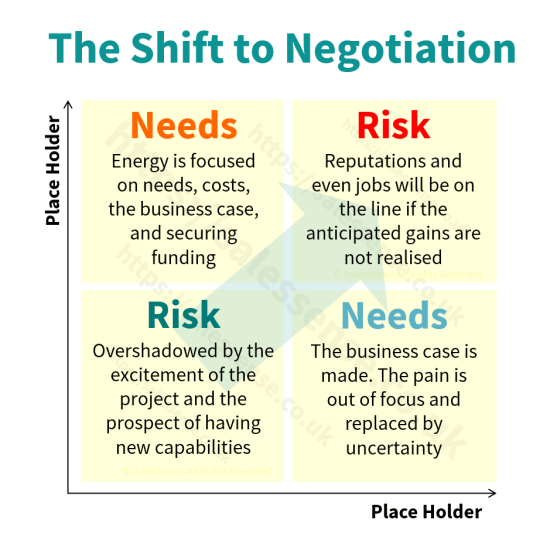Use these sales negotiation strategies to protect the value of what you sell.
Lynne R. Christen explains ten fundamentals of successful sales negotiations Use these sales negotiation strategies to defend your price, protect the value of what you sell, and preserve profits:
Hardly a day passes that we are not involved in some type of negotiation. This negotiation may be as simple as attempting to convince a friend to see the film we choose or as complicated as negotiating a percentage of a business offering or mediating a labour dispute.
At any rate, effective negotiation is an art... one that requires preparation and practice to be successful.
Consider these ten tips for improving your odds for a win-win negotiated resolution.
1. Know What You REALLY Want.
Many people enter negotiation only to find they did not have a clear desired outcome defined in their own mind. Write down your desired outcome as concisely as possible and use this outcome as the centre point of your preparation.
2. Know Your Opposition.
Learn as much as possible about who you are negotiating with, what they want, their strengths and weaknesses, and their likes and dislikes.
3. Consider the Impact of Timing and Method of Negotiation.
Whenever possible, negotiate face-to-face. It is easier to say NO over the telephone and in writing. Initiate the negotiation process so that you have the advantage of preparation and timing. 4. Prepare Your Presentation...Point By Point. Outline your presentation carefully. Place emphasis on benefits to the other party.
5. Anticipate Reactions, Objections and Responses.
If possible, brainstorm with others who have had similar negotiations to get a jump on what to expect. For each objection or reaction, list positive responses, alternatives and examples that counteract the negatives.
6. Structure Your Presentation to Ensure Agreement on One or Two Points at the Beginning of the Negotiation.
For example, "I think we can agree right away that we have a problem and that we both/all want to resolve it." Initial agreement on minor issues or points early on in the negotiation process sets a positive atmosphere for agreement in later, more significant stages.

7. Determine Paybacks and Consequences for Each Party in the Negotiation.
A clear understanding of paybacks and consequences makes it easier to determine when and how to make concessions and when and how to stick to your demands/requests.
8. Prepare Options Rather Than Ultimatums.
An ultimatum should be used only as a last resort when you are sure you can back it up and the other party knows you can back it up. Even then, in virtually every negotiation there are options and alternatives that reduce defensiveness and lead to positive resolution for all parties.
9. Get Comfortable With Silence.
Many negotiators feel compelled to jump in with arguments and comments each time there is a pause in the interaction. Practice withholding comments and responses. Silence can be a very powerful negotiation tool.
10. Close all Negotiations by Clearly Outlining the Agreement.
When agreement or conclusions have been reached and you are ready to end your negotiation, review the agreement that has been reached. Then, end your negotiation on a positive note... commending those involved and emphasizing the progress made.
About the author
This piece was written by Lynne R. Christen, Certified Total Quality Management Facilitator, Business/Career Coach and Seminar Presenter, who can be reached at lyncoach@gnt.net. Copyright 1998, Coach U, all rights reserved.
While some consider the whole sales process a negotiation, when a buyer gets close to making a decision, the rules change. The diagram above illustrates this shift. In the end game, sales negotiation strategies become increasingly important.
Ed.
If you are looking for sales negotiation strategies or negotiation skills training, we can help. Telephone +44 (0)1392 851500. We will be pleased to learn about your needs or discuss some options. Alternatively, email custserv@salessense.co.uk or use the contact form here.













